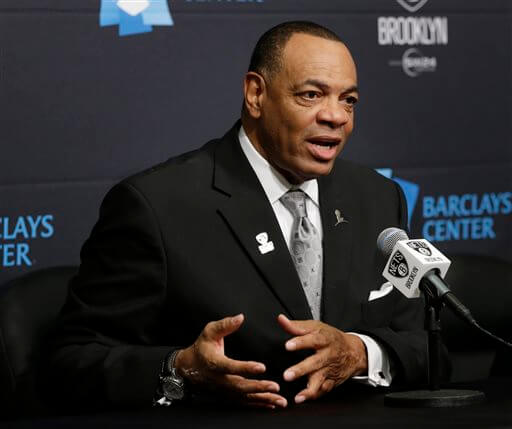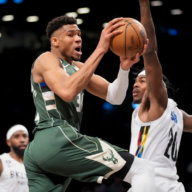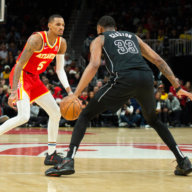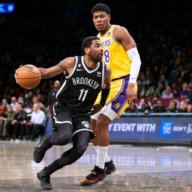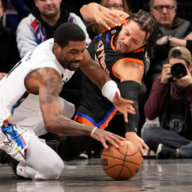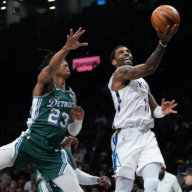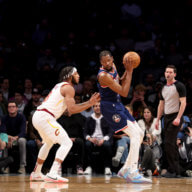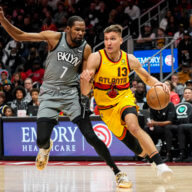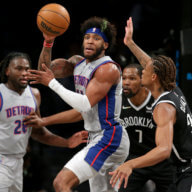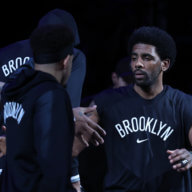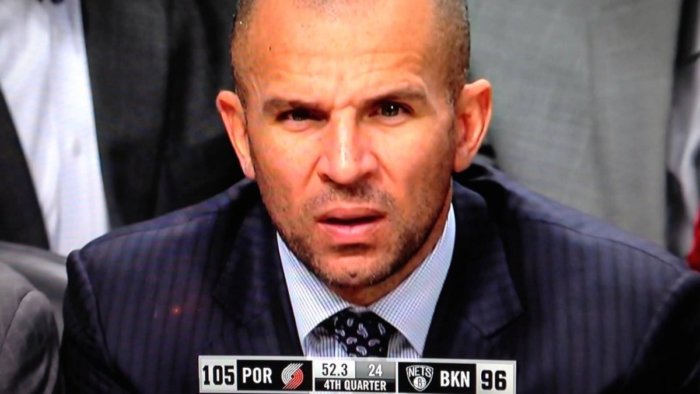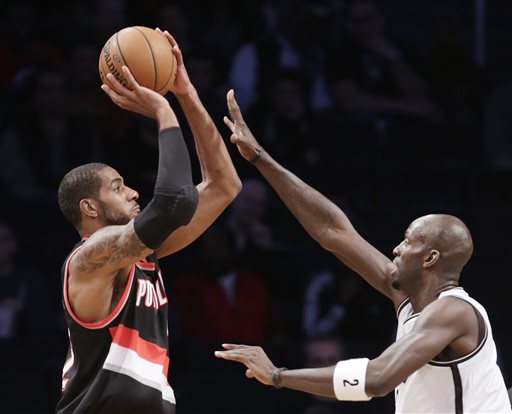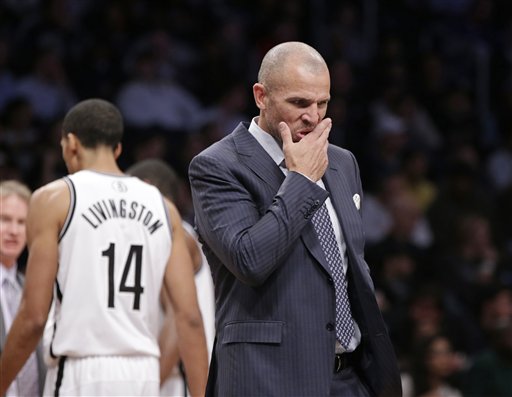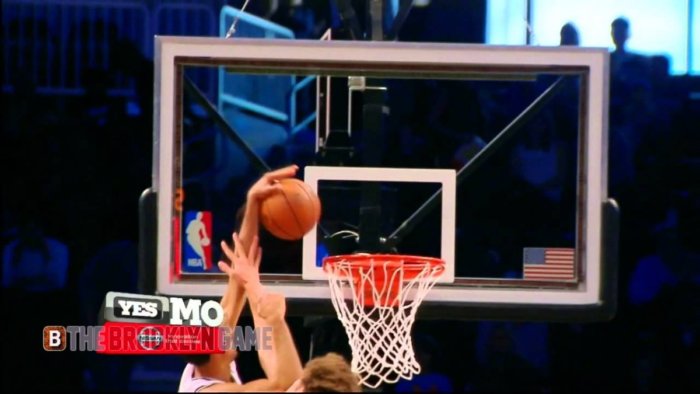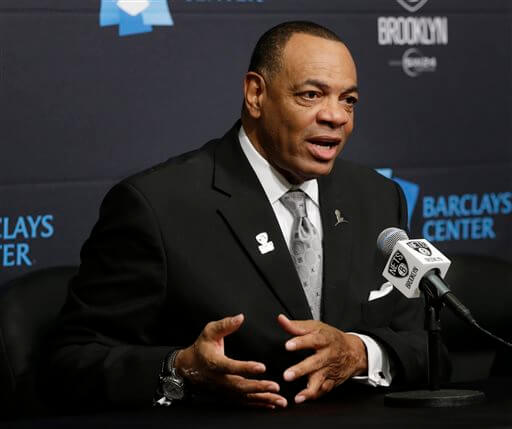
Via Arizona Sports — Lionel Hollins honored by ASU jersey retirement
Lionel Hollins had his jersey retired at Arizona State University back in 2011, when Hollins was coach of the Memphis Grizzlies. Three years later, now as the coach of the Brooklyn Nets, Hollins got on the radio with Doug & Wolf for the ASU Sun Devil Fork Report to talk about his jersey retirement and his new job in Brooklyn.
When asked about how money affects roles in the NBA, Hollins referred specifically to loyalty, reminding the radio hosts that players, coaches, and management should stay in their roles. “I think it’s up to players to play, coaches to coach, and management to do what they have to do to provide the talent for the coach for the great players that are on their team to help them go further,” Hollins said. “I think everybody, our society has moved towards now not a lot of loyalty, run for this, run for that, whether it be money, whether it be for to be with better players.”
Though he might not have been referencing him directly, it does sound like Hollins is talking about the man he replaced: current Bucks coach Jason Kidd, who was let go by Nets ownership after a failed power play in which he tried to usurp power from Nets general manager Billy King and seize a presidential position with the team. Though Kidd didn’t get better players on the rebuilding Bucks team, he did reportedly secure a better financial deal, a three-year contract worth between $4 and $5 million per season.
Hollins added that the biggest difference between the league in his time as a player and now was the financial disparity between the superstars and the minimums.
“I think that if you go back, you look in the 70s and 80s, a lot of the great teams had great players, had a lot of great players. The difference between then and now is that the disparity between the top players salary-wise and everybody else wasn’t so distant,” Hollins said.
According to a report by the Detroit Free Press, the maximum contract in 1983-84, one of Hollins’s final seasons as a player, was Magic Johnson’s $2.5 million — far below even the average NBA salary today, which is over $5 million. To compare, Kobe Bryant’s league-highest salary comes in at about $23.5 million, while a rookie on a minimum contract will earn slightly above $500,000.
“The gap now is so huge that yourselves and the media and the fans and sometimes management and sometimes owners think because they make so much money, they’re on a different level every other way,” Hollins said. But no superstar has ever won a championship by himself, and I don’t think that those players should be treated any differently, because it takes a team to win, and everybody’s important and valuable to your team for success.”
Hollins, known as a hard-nosed player in his 11-year NBA career, is now considered a no-nonsense coach that doesn’t care for outside distractions.
“I tell the players all the time, listen, when you walk out on that court, from the first day of training camp, money does not matter to you,” Hollins added. “You have all this money, whatever it may be, but when you start running line drills, and when you start diving for loose balls and taking charges, money does not matter. It doesn’t help you love the game more, it doesn’t help you play better. You are who you are, and you have to go out there and continue to be consistently who you are as you’re trying to perform and help your team win.”
Hollins attended ASU from 1973 to 1975 before embarking on a decade-long career with the Portland Trail Blazers in the NBA.
“It’s a great honor,” Hollins said of his jersey retirement. “It just shows the legacy that you left at the organization that you performed at. You tried to go at a high level every time you stepped on the court, at least for me, and to be recognized is like, ‘Wow.’ I didn’t go to school for that.”
Hollins was honored along with a former Nets coach, Byron Scott, who attended ASU from 1979-1983 and coached the Nets to two NBA Finals appearances in his tenure from 2000-2004.

